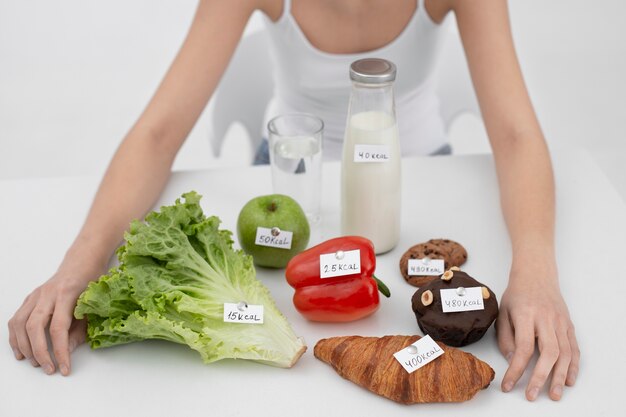
A small amount of fungus naturally lives on and inside our bodies, and this is typically harmless. However, certain conditions can cause this fungus to grow out of control, leading to yeast infections. Over recent years, cases of fungal infections, especially those caused by Candida species, have been on the rise. Among these, Candida albicans is the most common and can cause mild to severe infections. While it usually leads to superficial problems like oral thrush or vaginal thrush, in some cases, it may progress to life-threatening invasive candidiasis.
Candida is a normal part of the body’s microbiota, residing on skin and mucosal surfaces. However, people with weakened immune systems—caused by factors like aging, HIV, organ transplants, or chemotherapy—are more prone to recurrent yeast infections.
### What Are Candida Yeast Infections?
Candida is a group of about 100 different yeast species that naturally exist on various parts of the body, such as the skin, mouth, throat, intestines, and vagina. In healthy amounts, this yeast aids in nutrient absorption and digestion. However, an overgrowth can cause infections, referred to as candidiasis. These infections can affect areas including the mouth, throat, intestines, and skin, with vaginal yeast infections being one of the most common types. Symptoms of vaginal yeast infections include itching, swelling, redness, soreness, and a burning sensation during urination or intercourse. Nearly 75% of women worldwide experience this condition at some point in their lives.
If you suspect a yeast infection, it’s important to contact a healthcare professional for the appropriate diagnosis and treatment. A balanced diet alongside prescribed medications can help manage and even prevent yeast infections.
### The Candida Diet
The Candida diet has gained popularity as an approach to managing and preventing yeast infections. This diet involves reducing foods that encourage yeast growth—like sugar, refined carbs, gluten, alcohol, and certain dairy products—and increasing foods rich in vitamins, healthy fats, and probiotics. High-sugar diets, in particular, have been linked to an increased risk of yeast infections, especially vaginal candidiasis.
The diet focuses on eating lean proteins, low-sugar fruits, vegetables, healthy fats, and fermented foods to reduce body inflammation and maintain a balanced gut microbiome. By adopting these dietary changes, you can strengthen your immune system and create an environment less favorable for Candida overgrowth.
Here are some specific foods and nutrients that can help combat yeast infections:
1. **Low-Sugar Foods**
Since yeast feeds on sugar and starch, cutting back on refined sugars, white flour, and yeast-fermented products can help prevent infections. Instead, consuming low-starch vegetables, nuts, seeds, and healthy oils can reduce yeast growth and lower your chances of recurrent infections.
2. **Oregano**
Oregano oil is considered a natural remedy for fighting fungal and bacterial infections, including those caused by Candida albicans. It also promotes gut health, which can further inhibit yeast growth.
3. **Coriander**
Coriander seeds and essential oil have strong antifungal properties, making them effective against fungal infections like vaginal yeast infections. You can incorporate coriander oil into your diet by adding it to seasonings.
4. **Cheese**
Soft cheeses like cheddar, mozzarella, and cottage cheese contain probiotics that support gut health and help combat yeast growth. These cheeses provide good bacteria, such as Lactobacillus, which help maintain a healthy microbiome.
5. **Papaya**
Papaya seed and leaf extracts have antifungal properties that combat the fungi responsible for yeast infections. Additionally, papaya’s vitamin C content helps boost the immune system, which can reduce the risk of recurring infections.
6. **Yogurt**
Fermented foods like yogurt are rich in probiotics, such as Lactobacillus and Bifidobacterium, which can effectively control yeast overgrowth. Eating one serving of yogurt daily has been shown to reduce the risk of yeast infections.
7. **Virgin Coconut Oil**
Virgin coconut oil, thanks to its antifungal lauric acid content, prevents Candida overgrowth and supports gut health. Adding it to your diet can help combat and prevent yeast infections.
8. **Curcumin**
Curcumin, the active ingredient in turmeric, has powerful antifungal and anti-inflammatory effects. It inhibits the growth of Candida species and reduces the risk of infections.
9. **Probiotics**
Probiotics are good bacteria that naturally exist in the gut, skin, and vagina. They help maintain a balanced microbial environment and prevent yeast overgrowth. Probiotic-rich foods, supplements, or capsules can be effective in treating and preventing infections.
10. **Garlic**
Garlic contains allicin, an active component with antifungal properties. Regular consumption of garlic supports the growth of healthy bacteria and controls yeast levels.
### Final Thoughts
A Candida-focused diet and lifestyle changes can play a significant role in preventing and managing yeast infections. Incorporating immune-boosting foods and probiotics while avoiding high-sugar diets can help reduce the likelihood of yeast overgrowth. For more severe or chronic infections, consult a healthcare professional for a complete diagnosis and treatment plan. Through proper dietary adjustments and medical advice, you can significantly improve your defense against yeast infections.